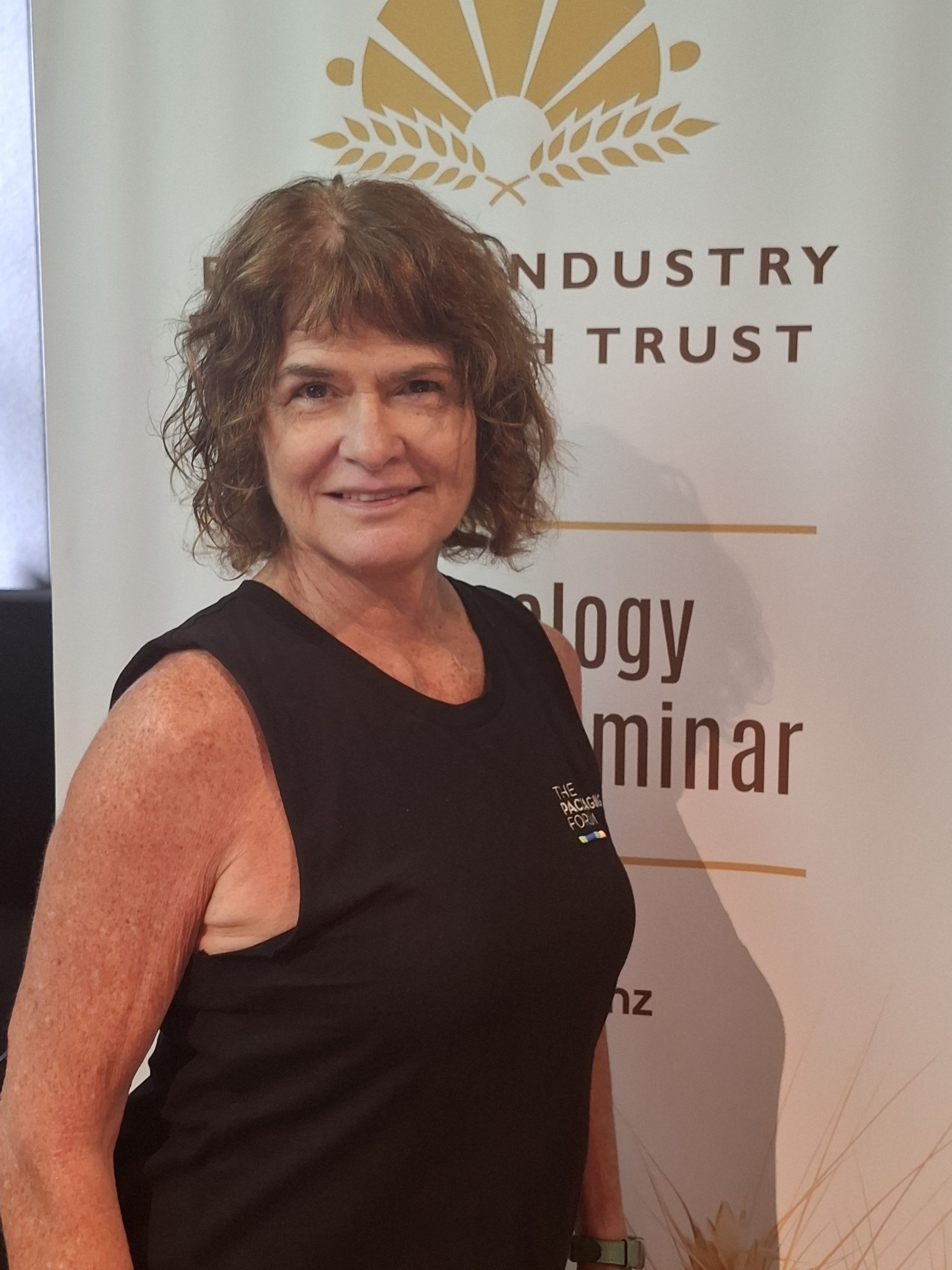Recent Articles
- 2025 Entrants Bread Baker of the Year Competition
- New logo shines light on New Zealand-grown grains
- Recovering valuable resources to create sustainable biogas and biofertilizer
- Field to Flour: Can we reduce our footprint?
- Leading Action on Food Waste
- Bread bags from bread returns
- Baking Global Technology Scan
- Sustainability for the Baking Industry – Food without Footprint
- Better energy management for bakers
- Update on the Soft Plastic Recycling Scheme
Presented as part of Technology Transfer Seminars 2025
Lyn Mayes, The Packaging Forum
Lyn Mayes established Mad World in 2001, to build networks and collaboration between the private sector, NGOs and local and central government to improve New Zealand’s environmental performance. She set up the Soft Plastic Recycling Scheme in 2015 for The Packaging Forum and is also sustainability advisor to the Food & Grocery Council. She is an external appointee to the Board of the Association of Metal Recyclers, a Board member of Be a Tidy Kiwi and immediate Past Chair of the Government appointed Auckland Conservation Board. Lyn was awarded a Kings Service Medal for services to conservation in the 2025 New Years Honours.
Innovation and diversification key to soft plastic recycling
We are approaching a decade of soft plastic recycling in New Zealand and bread bags make up 8% of what is collected from consumers. The bakery industry is playing a part in making it happen here, says Lyn, which is good news. But is our soft plastic recycling scheme sustainable? And what can we do to future proof it?
Soft plastic (plastic you can scrunch up into a ball) has no inherent value, so the scheme has to pay the cost of recycling and incentivise businesses to take on the risk of recycling soft plastics to make new products. A few figures to put it into context: In 2024, 737 tonnes of soft plastic was repurposed into posts. 87% of the population has access to soft plastic recycling.
Lyn emphasised the need to increase processing capacity – the scheme only collects what can be repurposed. They do not store it or export it. “We have to create demand. If people aren’t buying the products made from what we collect, the scheme will stop.” Innovation and diversification are key. Research into new and emerging technologies is needed to broaden the range of reprocessing options.
Convenience also needs to increase – kerbside recycling is not available at the moment but a trial underway in Nelson is proving that this would work through its incredible results – 3.48 tonnes after ten collection rounds (20 weeks) from only one thousand households! Change can also be driven by introducing mandatory producer responsibility for plastic packaging. By moving costs onto producers and with industry managing it, not councils, change may happen faster, but a mindset change is needed here first.

